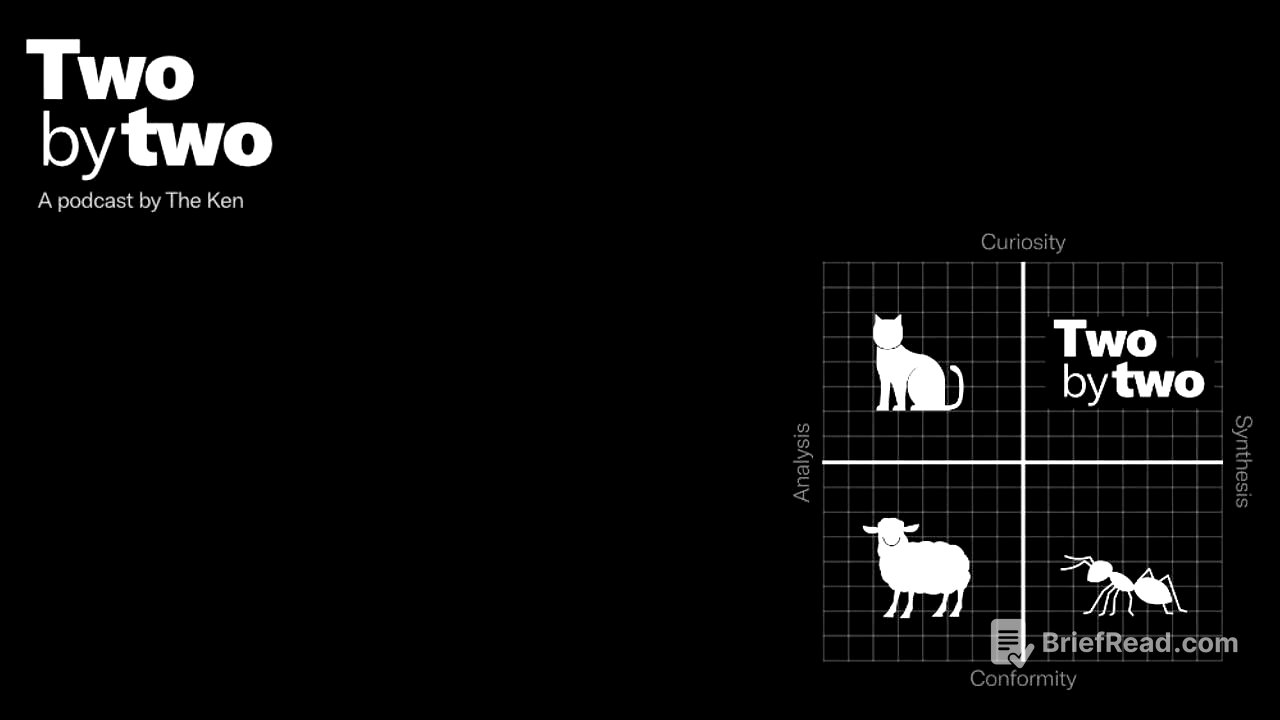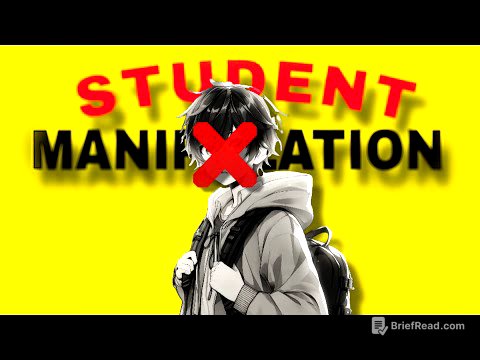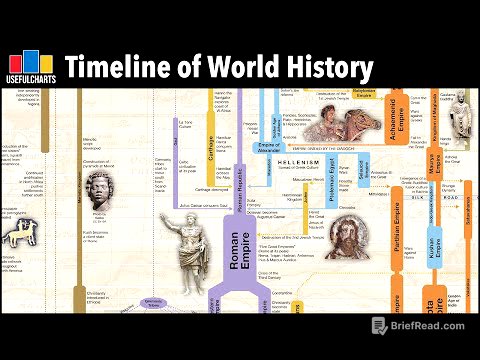TLDR;
This episode of The Ken's 2x2 podcast explores whether AI can replace human executive coaches and therapists. The discussion covers the nuances of executive coaching and therapy, the triggers that lead individuals and organizations to seek these services, and the potential for AI to augment or replace human practitioners.
- Executive coaching focuses on leadership and behavioral change, while therapy explores thoughts and emotions.
- Startups are more open to coaching and therapy due to growth mindsets and the need for rapid solutions.
- AI could provide scalable, affordable support, but may lack the emotional intelligence and nuanced understanding of human practitioners.
Intro [0:01]
Pravin introduces the free version of the 2x2 podcast, noting it was released to premium subscribers four weeks prior. He encourages listeners to subscribe to The Ken's premium plan or Apple Podcast channel for early access to episodes like 2x2, First Principles, The Nutgraph, and Make India Competitive Again.
Can AI Coach and Counsel You? [3:24]
Pravin and Rowan introduce the topic: whether AI can replace human coaches and therapists. They discuss how AI is becoming more scalable and affordable, potentially making it the default for leadership coaching and mental health support. They introduce guests Gaston Schmidz from the Asian Leadership Institute and Akriti Joanna, CEO of Kaha Mind, to explore the roles of executive coaching and therapy and whether AI can replicate them.
What is Executive Coaching? [5:31]
Gaston defines executive coaching as helping leaders achieve positive behavioral change and become better versions of themselves. He focuses on helping leaders reinvent themselves and scale as quickly as their companies. He mentions his work with over 75 founders in India, including more than 20 unicorn founders, and his team of 40 coaches who work with co-founders and CXOs.
What is Therapy? [10:40]
Akriti explains that therapy is less goal-specific than coaching, focusing more on exploring thoughts, emotions, and feelings to help individuals understand themselves better and lead more confident lives. She discusses Kaha Mind's work with startups to provide mental health solutions, including therapy sessions and awareness workshops. She emphasizes the importance of addressing the "messy, sticky bits" to help teams perform at their best.
Why Startups? [14:55]
Rowan asks why startups seem to be the primary clients for both executive coaching and therapy. Gaston attributes this to the growth mindset of people in startups, their lack of time to figure things out on their own, and a cultural openness to mentorship and learning in India. Akriti adds that mental health is a relatively new concept in India, creating eagerness and novelty around it.
Triggers for Seeking Help [19:21]
Rowan asks about the triggers that lead successful founders to seek coaching. Gaston says it's often driven by the ambition to grow faster, such as after a new funding round. Referrals from other founders and VC firms also play a significant role. Akriti notes that organizations often reach out when they see specific problems like low trust or high attrition, which they trace back to mental health concerns.
The Process of Executive Coaching [28:39]
Gaston describes his coaching process, which typically starts with a six-month engagement. The initial conversations focus on defining success and identifying the real goals. A key component is a 360-degree exercise involving interviews with co-founders, investors, direct reports, and even family members to reveal blind spots. Sessions involve checking in on growth areas, exploring belief systems, and addressing underlying issues.
The Structure of Therapy [35:55]
Akriti explains that therapy can be long-term or short-term, with approaches like Cognitive Behavioral Therapy (CBT) being more structured and short-term. CBT focuses on thoughts, actions, and feelings, often involving goal setting and homework. Long-term therapy is more flexible, adapting to the client's needs and progress.
Can AI Replace Human Connection? [38:19]
Pravin points out that both coaching and therapy involve conversations, prompting the question of whether AI chatbots could perform these roles. He references a Financial Times article about AI chatbots offering workplace counseling. Gaston acknowledges the potential of AI for pattern matching and tactical advice but emphasizes the importance of the "vibrational conversation" and emotional connection that AI currently lacks. Akriti agrees, noting that human mistakes and relatability build trust.
The Role of AI in Therapy and Coaching [48:12]
Akriti and Gaston agree that AI and human practitioners can coexist. AI can provide scalable support, availability at all hours, and data-driven insights. However, it may not be suitable for complex or critical cases that require emotional intelligence and nuanced understanding. Gaston emphasizes that coaches need to learn how to tap into AI to stay relevant.
Ethical Concerns and the Future of Human Interaction [1:03:51]
Pravin raises ethical concerns about AI coaching, suggesting it could degrade organizational development offerings and reserve human coaching for top executives. Gaston believes that AI will filter out coaches who only work at the intellectual level. Akriti notes that AI could help manage milder cases and provide support in moments of need.
The Dangers of Synthesizing and Over-Reliance on AI [1:10:11]
Akriti highlights that therapy is not always about feeling good; it can be uncomfortable and challenging. She warns that AI's tendency to agree with users (synthesizing) could prevent them from being challenged and growing beyond their comfort zones. Gaston adds that AI relies on prompting, which assumes the person knows what they need, and may not pick up on unspoken issues or nuances.
Envisioning the Use of AI [1:14:52]
Pravin asks how Gaston and Akriti envision using AI in the future. Gaston sees AI as a design partner for workshops and events, a resource for tactical tips, and a tool for personal organization. Akriti says Kaha Mind already uses AI for research and brainstorming, and she foresees therapists using AI to better understand clients and access relevant research.
Closing Thoughts [1:18:04]
Rowan reflects on the discussion and the potential for AI to create hyper-personal experiences. Gaston cautions against over-reliance on AI, urging people to consult their inner wisdom. Akriti advises building resilience frameworks and not immediately consulting AI in moments of need. Pravin thanks the guests and encourages listeners to share the episode.









